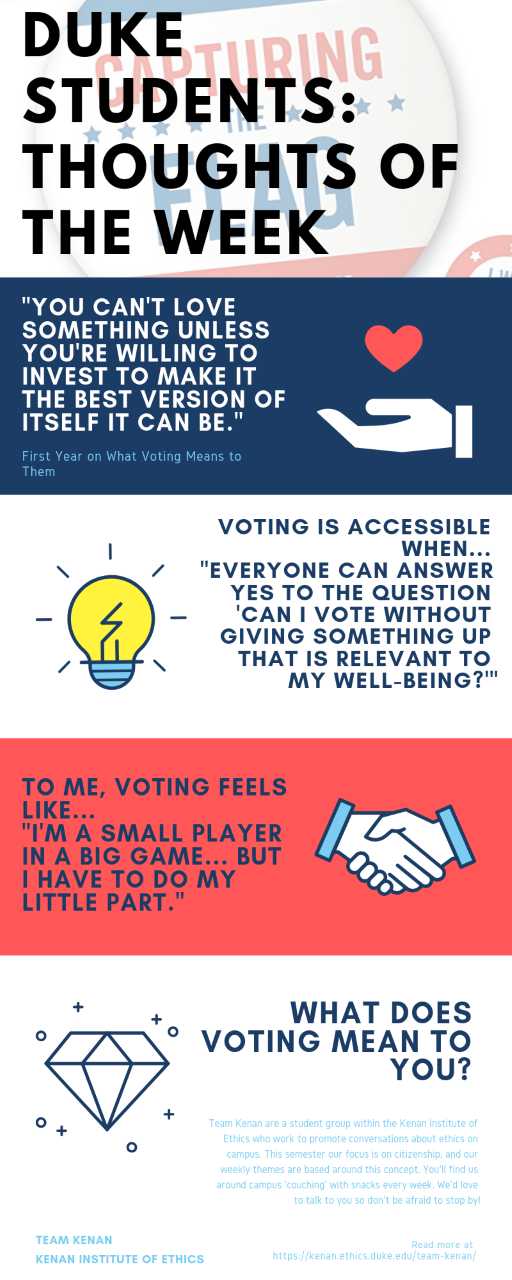Week of October 8: Voting Rights
“It’s better if less people vote.”
Most people in democracies believe that higher voter turnout is better, but one Duke student expressed the opposite opinion. The student explained that a high voter turnout does not necessarily mean informed decisions. It is better if only people who are truly engaged with politics and knowledgeable about the debated issues vote. If all citizens were legally obligated to vote, the student said, citizens would vote blindly along party lines—much like what happens in today’s political climate. Another student argued that uninformed votes can be detrimental to the democratic process. A voting mandate would make voting a chore — “much like problem sets” —that people do hastily.
“It’s better if more people vote.”
Many students argued that it is preferable to have more people vote; some even thought that citizens should still vote even if they are uninformed. High voter turnout, some said, would make politicians more accountable. To many students, the relevant question was not “Who should vote?” but “How do we educate people about election issues?” Some thought that a voting mandate would motivate people to learn about election issues themselves. Others thought that “trying to ‘inform’ people could be paternalistic.”
‘The purpose of voting is to keep democracy alive.’
This was a common response from students when asked why we vote. But students wondered not only how voting shapes policy, but how policy shapes voting. When asked about the accessibility of voting, most students agreed that it should be a right for citizens. ‘Being able to take away the right to vote is a dangerous power’, one student stated. Students disagreed, however, about whether voting is easy. Some stated it was easy to register, whilst others described a more burdensome process. Many agreed that voter fraud is an issue, and that Photo ID should be required, but also said that there shouldn’t be too many requirements, as these could disincentivize voters.
‘It’s a mucky problem’
One student worried about voting advertisements. They pointed to government poster that encourage voting: posters should be distributed in a systematic way so as to representative of the demographics of the region, but all too often, they target only certain areas. Students also noted that politicians also use gerrymandering to stay in power. ‘It’s a mucky problem,’ as one student put it, stating that while districts shouldn’t be permanently set, the partisanship of gerrymandering isn’t beneficial either.
‘Honestly, I’ve stopped keeping up with politics. It’s become too toxic of an environment.’
Some students admitted to not feeling sufficiently informed about voting and political events. ‘I vote for whom my friends tell me,’ a student confessed. Others noted the influence of social media and news on politics. ‘Everyone sees what they want to,’ a student said when asked about social media, ‘They are in echo chambers.’ Another worried about the lack of faith in news outlets in the current political environment.

